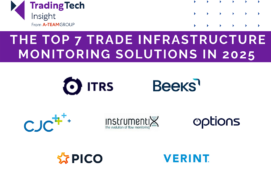
Execution-only broker Kepler Cheuvreux’s decision to implement Big xyt’s execution analytics and transaction cost analysis solution is part of a growing tendency for trading firms to view TCA as an opportunity to improve the business rather than as just a compliance box to tick.
Big xyt’s independent execution analysis solution supports TCA functions like benchmarking trades and orders for best execution under MiFID II, as well as compliance and client reporting. According to Mark Montgomery, head of strategy and business development at Big xyt, however, the solution takes things a step further by using data science techniques improve data quality and provide analytics for clients.
For example, using a custom API, the solution enables Kepler Cheuvreux to add its own proprietary data layer, including trade and order history. Kepler’s team can then download the information it needs or review it on dashboards, as well as extract it using the API.
More than ‘just’ TCA now
The interest in doing more with TCA stems from three underlying trends, says Montgomery. First, the volumes of data that firms have to work with has increased significantly, as has the cost of this data – firms want to get more value out of the money they are spending on TCA compliance, he says.
Secondly, he says, regulators are no longer satisfied with seeing calculations undertaken just for compliance purposes – they want to see firms actually using the data to make informed decisions that influence best execution practices. Finally, some firms are beginning to use TCA to inform their trading decisions, and are achieving a competitive advantage over other firms as a result.
“It’s really about how much people use the data – how much they’re prepared to roll their sleeves up and actually use it to their advantage,” says Montgomery. “Because the bottom line is if they don’t do it, there are hedge funds and market-makers out there who have been doing this for the last five or 10 years and are being smart about the data that’s available and then interpreting it correctly.”
For example, says Montgomery, firms can use the data to run scenario tests on their algo wheels. “The benchmarking hasn’t changed, but the way in which you can use it and the frequency with which you can use it allows firms to do things in much smarter ways,” says Montgomery. Buy-side firms could now give instructions to a sell-side firm and then test to see if the broker has carried them out. On the flip side, sell-side firms can use the technology to more finely-tune their approach to best execution, making themselves more competitive. Says Montgomery, “it allows people to have an experimental work bench.”
More data and smarter analytics help on the compliance side of things too, he says. The extra data can provide more context around a trade, enabling the circumstances under which best execution was attempted to be better understood. Better analytics can help weed out false positives so that compliance teams can spend their time focused on the investigations that really matter.
Looking beyond equities
Big xyt as a company is looking forward to continued growth in 2020 says Montgomery, with the possibility of geographic expansion as well as moving beyond equities into other categories such as FX and fixed income. He says data quality is the biggest barrier to providing TCA for these new categories. For example, fixed income has more than 120 dealer platforms, and liquidity can be thin – 70% of bonds don’t actually trade between issuance and maturity, he says. “It’s a completely different landscape that people are being forced to try to shoehorn a best execution approach on to,” he says. “It’s an area we are definitely investing more time in.”
Subscribe to our newsletter




